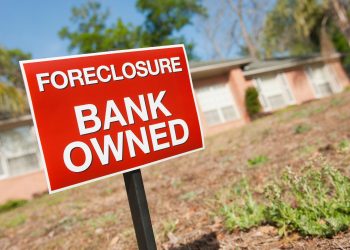Consumer perception can be a powerful force, especially as it relates to residential real estate.
A look at today’s housing market doesn’t forecast an imminent housing crash as many consumers fear, but instead shows a hopeful future, according to the Residential Economic Issues & Trends Forum at the 2018 REALTORS® Conference & Expo. The session featured an economic and housing forecast from Lawrence Yun, chief economist for the National Association of REALTORS® (NAR), as well as insights from Lisa Sturtevant, president and founder of Lisa Sturtevant & Associates, LLC—which provides affordable housing needs assessments, program evaluation and training—on the importance of housing affordability in the U.S.
The biggest concern? Pessimistic headlines regarding a housing bubble, a wobbly stock market, increasing interest rates and fears of inflation, which are damaging consumer confidence and could cause buyers to retreat when the market is, in fact, only experiencing mild adjustments, as Yun determined by examining historical data.
“2017 was the best year for home sales in 10 years, and 2018 is only down 1.5 percent year-to-date,” said Yun. “Statistically, it is a mild twinge in the data, and a very mild adjustment compared to the long-term growth we’ve been experiencing over the past few years. We don’t want qualified consumers to miss out on historical wealth gains because they are pulling back.”
Existing-home sales are going down in the short term, but are mostly moving sideways and are still on an upward trend in the long term, according to Yun. The predominant challenge? An increasing inventory shortage.
“All indications are that we have a housing shortage,” said Yun. “If you look at population growth and job growth, it is clear that we are not producing enough houses.”
However, Yun believes we could see a shift in the near future. Suddenly, sellers are joining the market—and while the winter months are tough to gauge, come the spring market, markets across the nation could begin seeing normal price adjustments, especially in metro areas with exorbitant price tags that could benefit from a minor downward drift.
“NAR research shows that a lower percentage of consumers think that now is a good time to buy, while more are indicating that it is a good time to sell,” said Yun. “Problems could arise if the market is flooded with too many sellers and not enough buyers. Fortunately, that does not appear to be the case, as indicated by months’ supply of inventory at below five months.”
Why are some buyers holding back? They are not seeing the big picture. Yun emphasized that today’s market is fundamentally different from the market at the height of the housing bubble. Rental vacancy in 2004 was at 10.4 percent—much higher than today’s 6.8 percent. Additionally, while affordability is down and prices are up in the short term, the market is within the normal range for home prices, historically speaking.
“Most states are reporting stable or strong market conditions, housing starts are under-producing instead of over-producing and we are seeing historically low foreclosure levels, indicating that people are living within their means and not purchasing homes they cannot afford,” said Yun. “This is a stronger, more stable market compared to the loosely regulated market leading up to the bust.”
Consumers have nothing to fear at the moment; in fact, Yun stated the future of home sales looks rather ordinary. By 2020, home price appreciation will continue on, but at a slower, more controlled pace. The national median existing-home price is predicted to increase to around $266,800 in 2019 (up 3.1 percent from this year) and up to $274,000 in 2020.
“Home price appreciation will slow down—the days of easy price gains are coming to an end, but prices will continue to rise,” said Yun.
Yun’s forecast does, however, largely depend on the increase of single-family housing starts, making seller participation and the reemergence of new construction integral to the health of the housing market.
Focusing on Housing Affordability
What can industry professionals do to dispel housing bubble myths for consumers and encourage involvement? It begins with tackling the housing shortage and factors that impact affordability. According to Sturtevant, the effort must begin at a local level.
“This is a local issue,” said Sturtevant. “Housing gets built at the local level, and so increasing the supply of housing has to start at the local level.”
“NAR has created a website where local associations and REALTORS® can go for information on how to advocate for increased supply in their communities,” said Yun.
In terms of strategies to get the ball rolling on housing affordability, Sturtevant stated there are numerous opportunities, some of which include:
- Reducing Regulation – Establishing higher-density residential development near transit and in other types of neighborhoods
- Reducing Parking Restrictions – Studying parking standards and lowering parking requirements
- Amending Greentaping Standards – Streamlining and reducing inefficiencies in the development review and approval process
- Modifying Building Standards – Reviewing building material requirements and modifying to allow more modular and manufactured homes
- Creating Adaptive Housing – Creating opportunities to reposition commercial properties as housing
- Increasing Public Land – Making publicly-controlled land available to developers of mixed-income or affordable housing
- Boosting Construction Jobs – Expanding interest and opportunities in construction trade jobs
- Abating Property Taxes – Using property tax abatement as gap financing to support more compact and affordable housing communities
“I am a researcher, not an advocate—but the results of my research have compelled me to see the importance of affordable, stable housing and the positive economic impact to local communities,” said Sturtevant.
Continuing coverage of the REALTORS® Conference & Expo to come.
For more information, please visit www.nar.realtor.
 Liz Dominguez is RISMedia’s associate content editor. Email her your real estate news ideas at ldominguez@rismedia.com. For the latest real estate news and trends, bookmark RISMedia.com.
Liz Dominguez is RISMedia’s associate content editor. Email her your real estate news ideas at ldominguez@rismedia.com. For the latest real estate news and trends, bookmark RISMedia.com.











